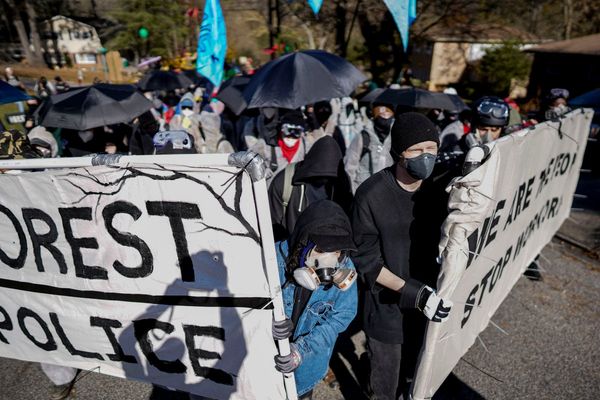
French soccer giant Paris Saint-Germain has sided with Europe’s governing body in rejecting plans for a 12-team breakaway Super League, in a major blow for the controversial new project.
“Paris Saint-Germain holds the firm belief that football is a game for everyone. I have been consistent on this since the very beginning,” the club’s Chairman Nasser Al-Khelaifi said in a statement Tuesday, confirming an earlier report from Bloomberg.
Qatar-owned PSG, which is one of Europe’s richest clubs and has qualified for the semifinals of this season’s UEFA Champions League, adds weight to the ranks of teams opposing the plans. Germany’s six-time European champion, Bayern Munich, and Borussia Dortmund have also been critical holdouts, joining a global outcry from fans and governments.
The reluctance of teams from France and Germany to join the 4 billion-euro ($4.8 billion) Super League, financed by JPMorgan Chase & Co, is a potential drag on the appeal of the rebel competition. PSG boasts a team of global superstars, led by Brazilian Neymar and French attacker Kylian Mbappe. Al-Khelaifi spent an estimated total of more than 400 million euros to bring them to Paris.
“This project just does not work without France and Germany,” said Francois Godard, a media analyst at Enders Analysis. “How can you sell it as a European league when you’re just talking about Milan, Madrid and London?”
The Super League has received interest from possible media partners but no deals have been reached, according to a source close to the discussions. Documents prepared earlier this year, seen by Bloomberg, show that the new league is considering allowing individual clubs to stream 4 games on their own digital applications or TV channels.
The confrontation reflects the evolution of the world’s most popular game as a global business. Led by clubs from England, Italy and Spain, teams with vast fanbases and significant debts are seeking to squeeze more cash from broadcasting rights and underpin revenue after a year spent playing in empty stadiums.
Under the Super League plan, the likes of Manchester United, Liverpool and Real Madrid would start their own competition in August. Six teams from England, three from Italy and three from Spain have signed up so far. The so-called “founding members” say they intend to sign up another three permanent members and offer places to five more teams each season. The 20 teams would play each other midweek as an alternative to the current Champions League.
PSG’s Qatari owners have close ties with UEFA and the country is scheduled to host the World Cup next year -- a competition that could take a serious hit if soccer governing body FIFA decides to ban Super League players from taking part.
Any proposal lacking the support of UEFA “does not resolve the issues currently facing the football community, but is instead driven by self-interest,” Al-Khelaifi said.
The spat has also led to a shake-up of the European Club Association, a body that represents the interests of more than 200 soccer clubs. Bayern CEO Karl-Heinz Rummenigge is to replace Andrea Agnelli, chairman of breakaway club Juventus, as an ECA representative on UEFA’s executive committee -- a boon to the European body and a setback for Super League backers hoping to win over the German team.
Bayern and Dortmund have both issued statements in opposition to the Super League plans. They did not immediately respond when contacted for further comment. While German clubs have started to open up toward external financing, they remain under-funded compared to English rivals. Supporter involvement remains key, with members still shaping key decisions at most Bundesliga clubs and commercial investors barred from holding more than 49% of voting shares.
Even RB Leipzig, a club that has come under fire from soccer fans because of its backing from energy drink maker Red Bull GmbH, has rejected plans to establish a Super League.
“Sporting competition in professional football means fighting to achieve a position in the domestic league table that allows the team to take part in international competition,” Oliver Mintzlaff, CEO of the club, said in a statement. “For us, changing this is absolutely out of the question.”
©2021 Bloomberg L.P.







